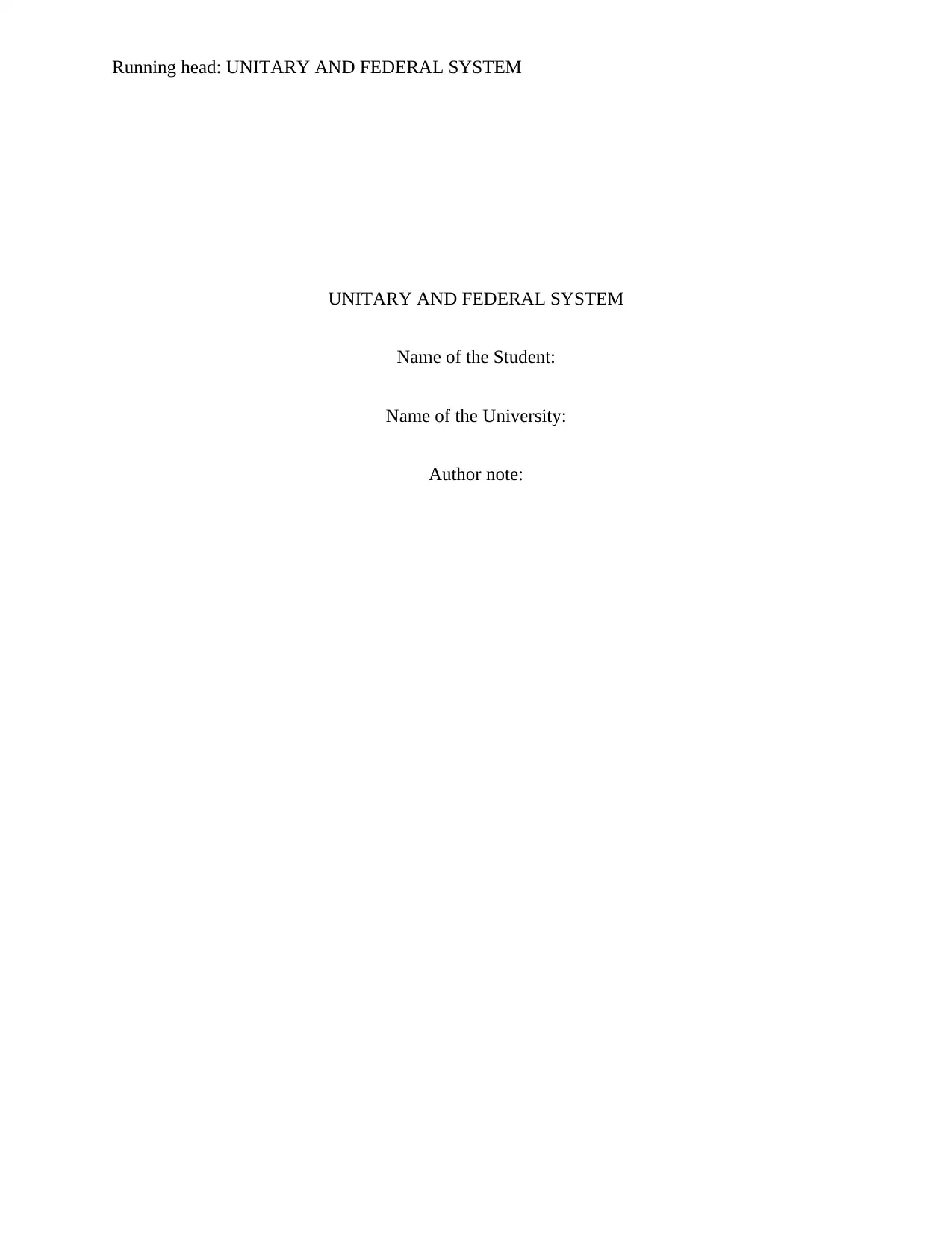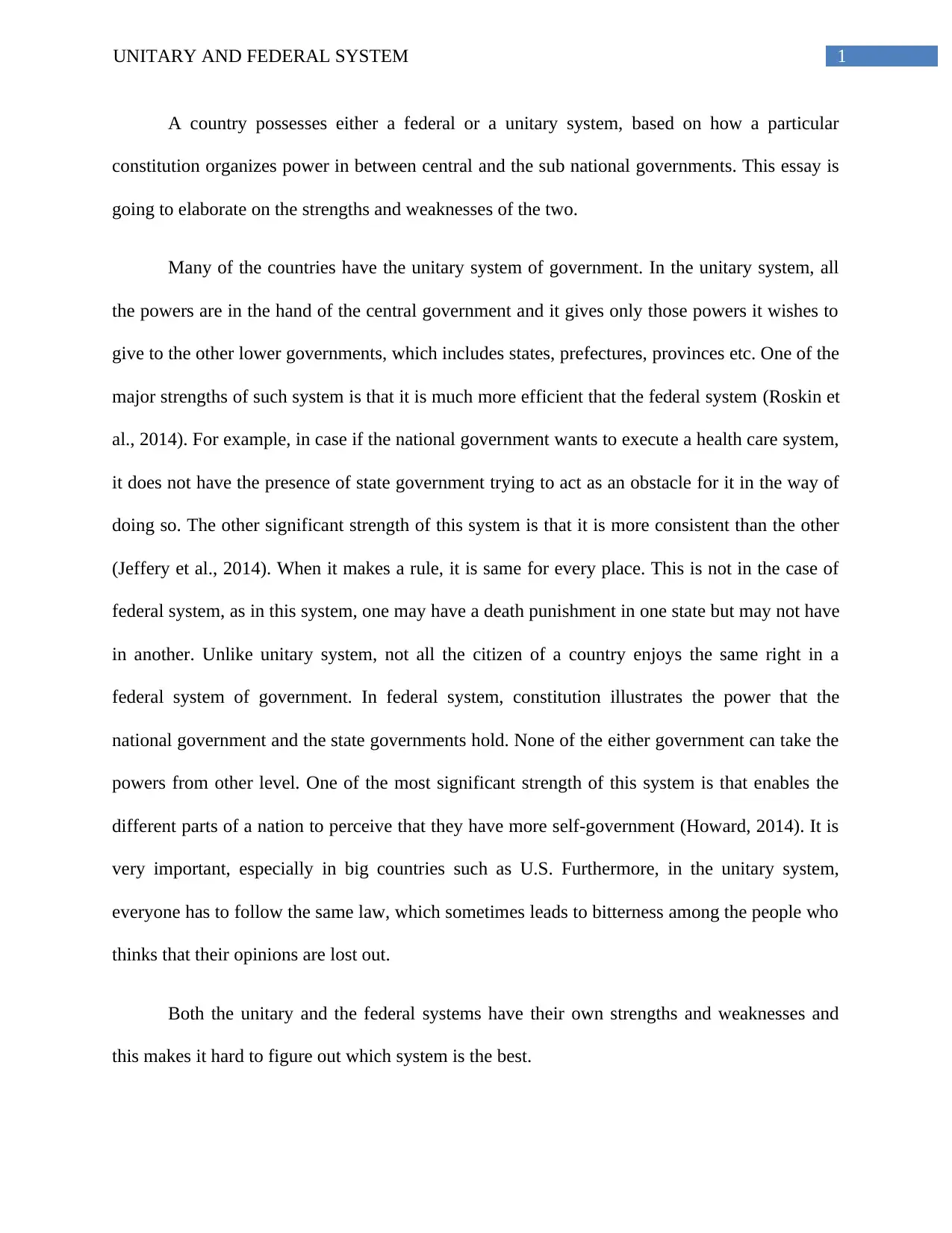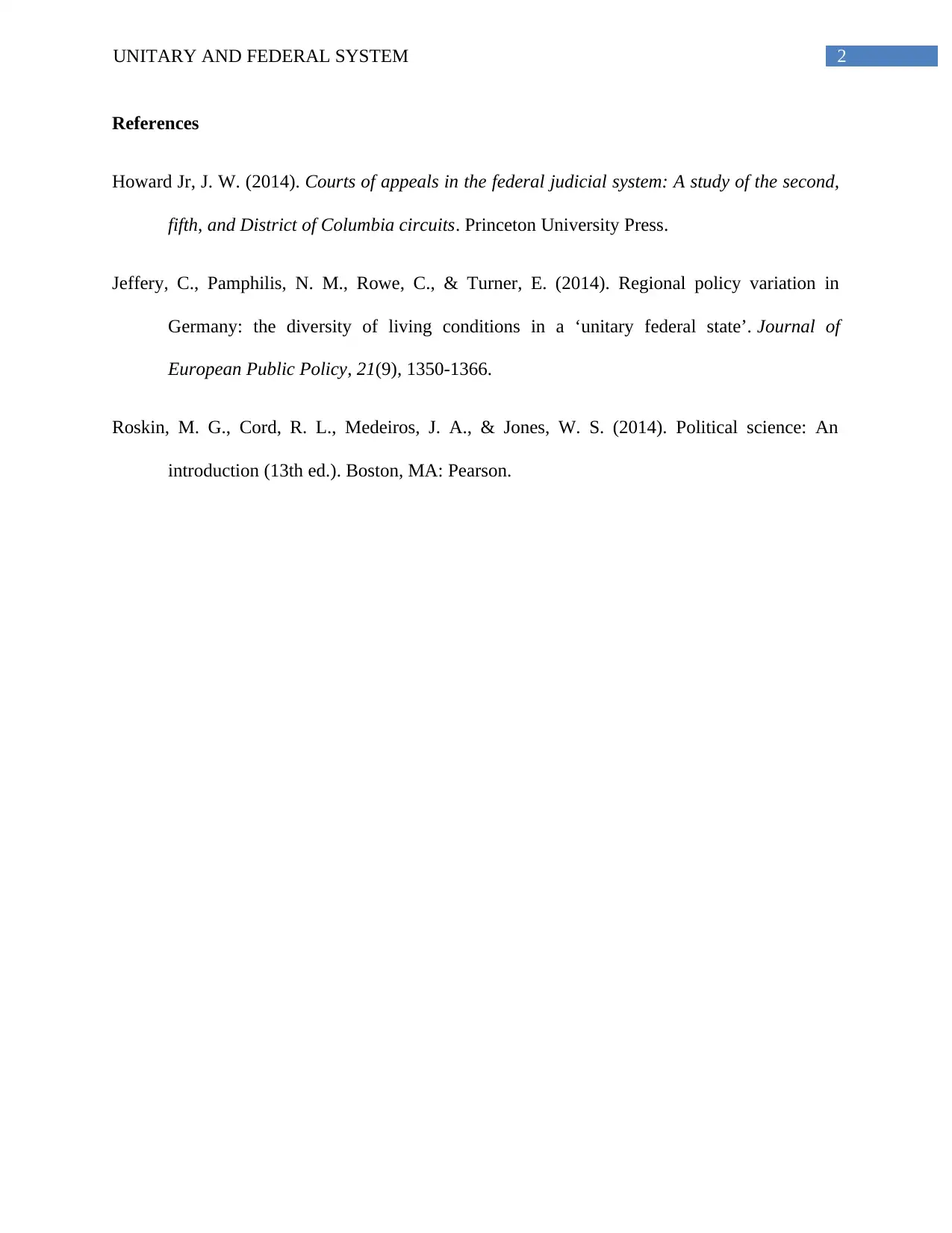Essay: Strengths and Weaknesses of Unitary and Federal Systems
VerifiedAdded on 2021/04/21
|3
|547
|30
Essay
AI Summary
This essay provides a comparative analysis of unitary and federal systems of government. It begins by defining the key characteristics of each system, highlighting that unitary systems concentrate power in a central government, while federal systems divide power between a national government and sub-national entities. The essay then delves into the strengths of each system. Unitary systems are presented as more efficient and consistent in policy implementation, while federal systems are lauded for promoting self-government and accommodating regional diversity. Conversely, the essay acknowledges the weaknesses of each system, noting that unitary systems may lead to a lack of regional autonomy and that federal systems can be less efficient and create disparities in rights. The essay concludes by suggesting that both systems have their advantages and disadvantages, making the choice of which system to adopt dependent on the specific context and needs of a nation. The essay uses references to support its arguments.
1 out of 3










![[object Object]](/_next/static/media/star-bottom.7253800d.svg)